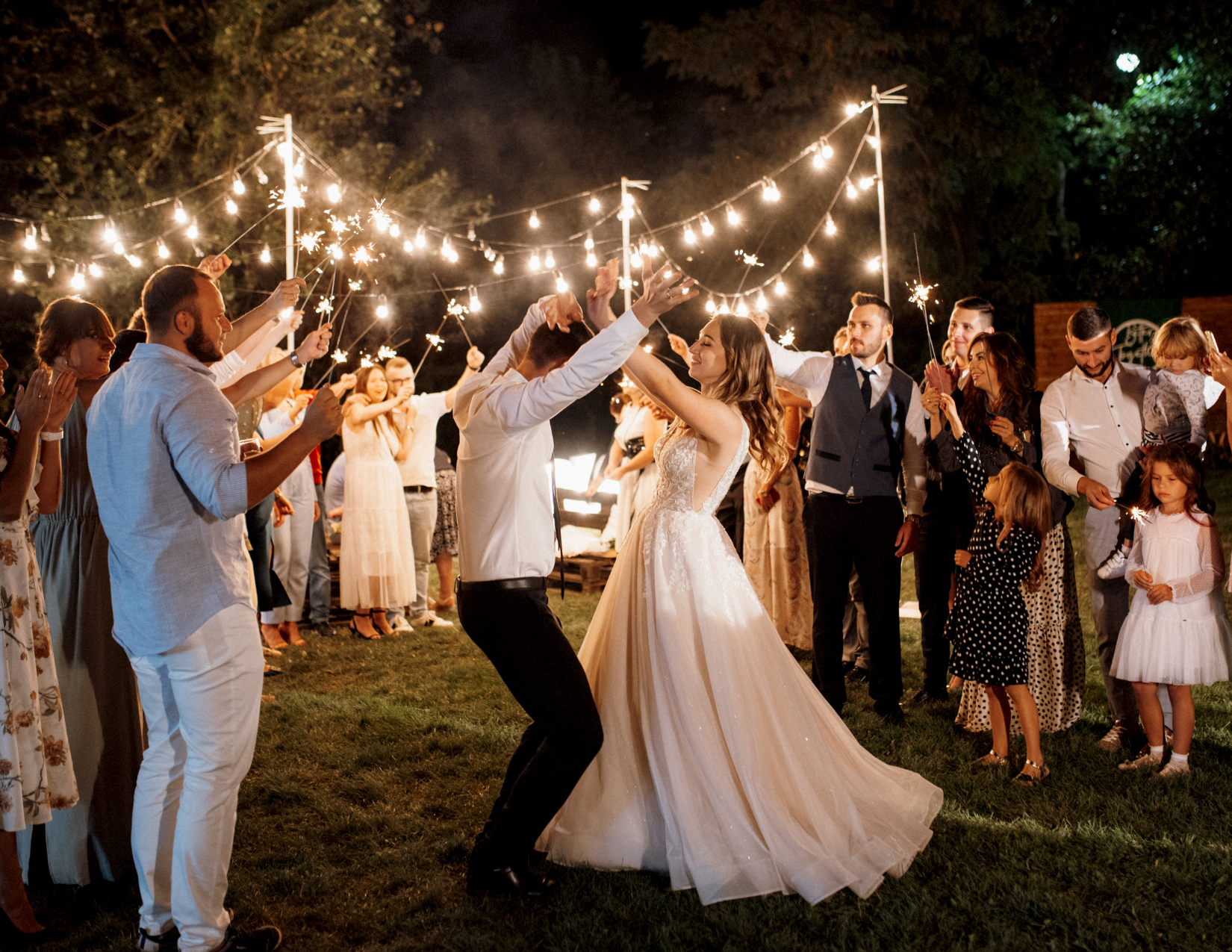
Establishing Guest Boundaries: How to Ensure an Enjoyable Wedding
This post may contain affiliate links, which means we may receive a commission, at no extra cost to you, if you make a purchase through a link. Please see our full disclosure https://sagecounselingtherapyandwellness.com/disclosure-privacy-policy-terms-of-use/ for further information.
Setting boundaries with guests at weddings is essential for maintaining order, ensuring everyone’s comfort, and creating a memorable experience for both the couple and their attendees. Establishing a clear invitation, detailed RSVP instructions, guest limits, and dress code all help to avoid misunderstandings. Effective communication through a wedding website and email updates centralizes information and minimizes repetitive questions. Additionally, establishing social media etiquette can help maintain the couple’s privacy and manage the flow of information. There are a lot of different ways to set boundaries both before, during, and after weddings that you should be aware of.
By delegating tasks and being clear about expectations, couples can create a smooth and enjoyable celebration for everyone involved. Here’s a comprehensive guide on effectively establishing and communicating these boundaries to ensure a smooth and enjoyable celebration!
1. Establishing Your Guest List
The first step to setting guest boundaries is determining who will be invited to your wedding. This process begins by considering key factors such as your budget, venue capacity, and the atmosphere you want to create for your special day. Start by discussing ideas with your partner and families to establish clear criteria for inviting guests. Prioritizing close family and friends ensures that those most important to you are included in the celebration.
To manage the guest list effectively, set limits on plus-ones. For example, making it clear that only those in long-term relationships or married couples are invited with a guest is a way to reduce your guest list. Additionally, it might be necessary to exclude acquaintances or coworkers to maintain a manageable and intimate gathering. Clearly communicate these decisions in your invitations and on your wedding website to avoid misunderstandings. This strategic approach not only helps maintain your budget and fit within your venue’s capacity but also creates a more personal and meaningful atmosphere for your special day.
2. Communicate Clearly and Early
Once you’ve finalized your guest list, it is crucial to communicate your decisions clearly and early to avoid misunderstandings. Begin by sending out save-the-dates and invitations well in advance, ensuring guests have ample time to make necessary arrangements. Include relevant details in these communications, such as RSVP deadlines to help you finalize numbers, and any special instructions, such as a dress code or a children’s attendance policy. By clearly stating your expectations from the outset, you help guests understand their role in your celebration and allow them to plan accordingly. This proactive approach minimizes confusion and demonstrates consideration for your guests’ needs and schedules, contributing to a smoother and more enjoyable wedding experience for everyone involved.
3. Setting RSVP and Attendance Boundaries
Establishing RSVP and attendance boundaries is crucial for managing guest numbers and logistics. Specify RSVP deadlines and methods, such as online RSVPs or phone calls, to ensure you receive responses promptly. Set a firm deadline for RSVPs to allow adequate time to finalize catering, seating arrangements, and other essential details. If your venue has capacity limitations, communicate these restrictions clearly to your guests. Should any unexpected additional guests try to RSVP after the deadline, address the situation politely but firmly, reinforcing your established boundaries. This approach helps maintain order and ensures that the event runs smoothly, respecting both the couple’s plans and the guests’ understanding of their role in the celebration.
4. Managing Plus-Ones and Children
Decide early on your policy regarding plus-ones and children at your wedding. If budget or venue constraints limit the number of guests, consider restricting plus-ones to married or long-term couples only. Clearly state your policy on invitations to avoid confusion and potential awkwardness. When it comes to children, communicate whether your wedding is adults-only or if children are welcome. Be consistent with your policy across all guests to ensure fairness and clarity.
5. Handling Dietary Restrictions and Preferences
Be proactive in gathering information about guests’ dietary restrictions and preferences. Include a section on dietary requirements in your RSVP cards or ask guests to inform you separately. Work closely with your caterer to accommodate these needs without compromising on the quality of the meal. Communicate clearly with guests about the menu options available to them to ensure everyone can enjoy the wedding meal comfortably.
6. Establishing Ceremony and Reception Etiquette
Set boundaries around ceremony and reception etiquette to maintain the solemnity and flow of your wedding day. Begin by providing clear instructions to guests regarding arrival times to ensure punctuality. Detail seating arrangements and any cultural or religious rituals they should be aware of to foster understanding and respect. Designate ushers or include signage to guide guests to their seats and inform them of specific protocols during the ceremony or reception.
Additionally, communicate any rules or restrictions regarding photography and social media usage to prevent distractions and maintain the event’s ambiance. Specify participation guidelines for activities to ensure that everyone respects your wishes and contributes to the smooth progression of your celebration. By establishing these boundaries, you create a structured and respectful environment, allowing you and your guests to fully enjoy the special day.
7. Handling Unwanted Advice or Requests
Weddings often invite unsolicited advice or requests from guests, ranging from opinions on your wedding choices to last-minute requests for accommodations. When faced with unwanted advice or requests, it is important to politely but firmly set boundaries. Thank guests for their input, acknowledging their intention to help, but emphasize that you have already made decisions based on your preferences and values. For example, you could tell someone, “Thank you so much for sharing your thoughts, I appreciate it! However, I am going to stick with my and my partner’s personal decisions on the wedding at this moment. If I have anything I’d like advice on, I’ll be sure to reach out to you!”
Redirect conversations to more positive topics, steering away from contentious or intrusive discussions. If requests do not align with your wedding plans, politely decline them, maintaining a firm stance while expressing gratitude for their understanding. This approach helps preserve your vision for the day while maintaining amicable relationships with your guests.
8. Providing Support and Information
Offer support and information to guests to help them feel comfortable about your wedding day. Provide details about accommodations, transportation options, and local attractions for out-of-town guests. Consider creating a wedding website or FAQ document to answer common questions and provide additional information about the schedule, attire recommendations, and any special activities planned. Being proactive in providing information demonstrates your consideration of guests’ needs and enhances their overall experience.
9. Handling Unexpected Situations Gracefully
Despite careful planning, unexpected situations may arise during your wedding day. Stay flexible and handle these situations with grace and diplomacy. Whether it’s managing last-minute cancellations or accommodating unforeseen dietary restrictions, prioritize guests’ comfort and well-being while remaining true to your boundaries and priorities. Enlist the support of trusted family members, wedding party members, or vendors to help address challenges swiftly and discreetly.
Setting boundaries with guests at weddings is essential for creating a harmonious and enjoyable celebration that reflects your vision and values as a couple. By establishing clear guidelines for guest lists, RSVPs, etiquette, and communication, you can navigate potential challenges with confidence and ensure that your wedding day is a memorable and joyous occasion for everyone involved. Remember, effective boundary-setting promotes respect, clarity, and a positive atmosphere, allowing you to focus on celebrating your love surrounded by cherished family and friends
To discuss how therapy could help you during this season of your life, please contact me or schedule your free 15 minute consultation.
Want to read more? Here are a few of my related blog posts you may be interested in checking out!




0 Comments